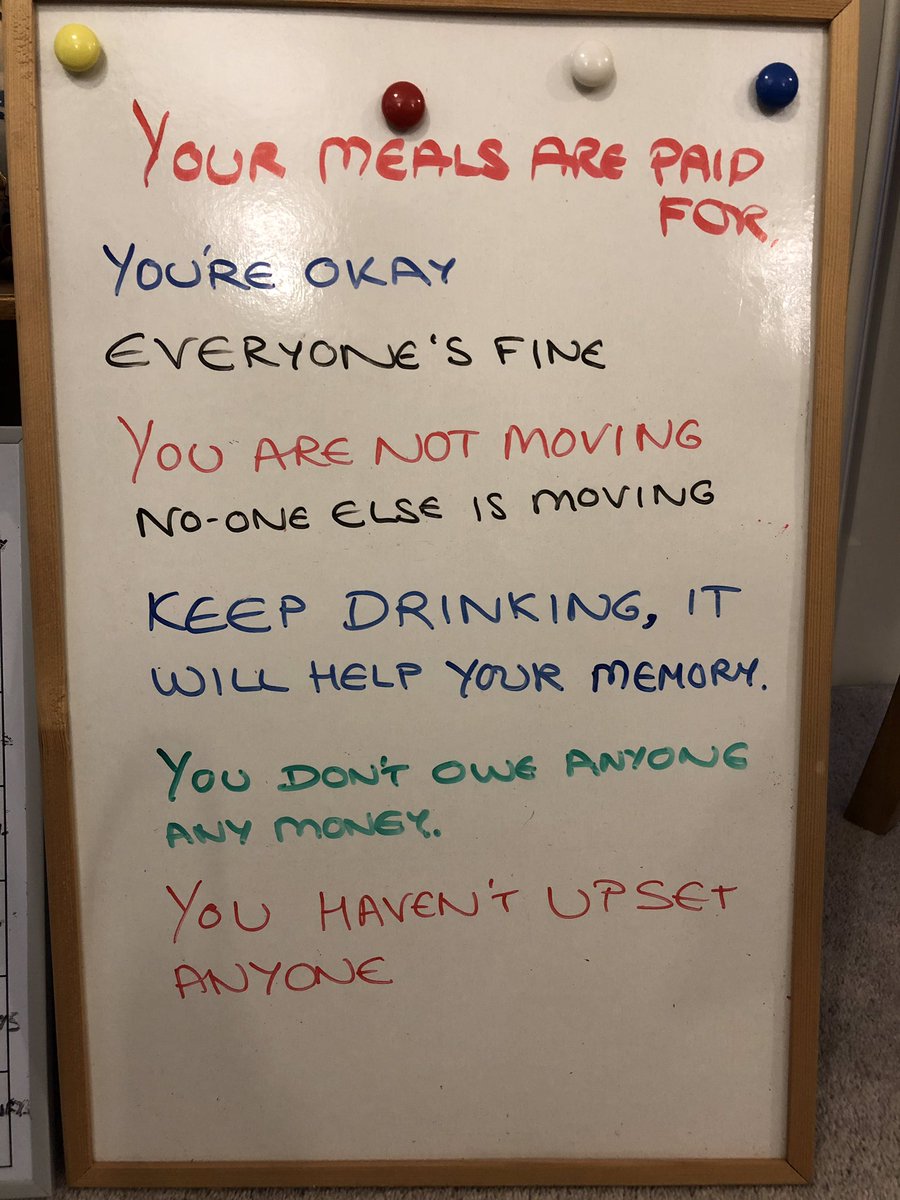Simple Solutions for Diminishing Anxiety Levels in Dementia Patients
Nearly 90% of dementia cases exhibit behavioral changes such as apathy, agitation, anxiety, delusions, and to a lesser degree hallucinations. Managing these behaviors is difficult and stressful for family members to resolve and heartbreaking to witness.
There are many family caregivers in need of and searching for any solution, permanent or temporary, that will help family members with dementia. Which brings me to the inspiration of writing this blogpost. For those of you who don't know, I like Twitter a lot. On it, I follow and engage with a world wide community of aging, caregiving and dementia experts. Some are physicians, healthcare journalists and bloggers, and others develop technology and, provide a variety of services for caregivers and older individuals. And many of them are just like you, caregivers. I learn from them all
Not too long ago a British physician (@GrimmPhil) posted a photo of words of reassurance written on a white board that a daughter left for her mother, who has dementia and anxiety (see left). I thought this was a great idea; the board was seen by over 1 million people around the world. Statements such as "Your meals are paid for," " You're ok, everyone's fine," "You don't owe anyone money," and "You haven't upset anyone" helped to reduce the number of anxious telephone calls made to the daughter. I was really taken by the many responses this post generated. Many shared their own "out of the box" remedies.
One response was from a caregiver of a hospitalized dementia patient who had been awake all night. He was looking for his bus stop, and afraid he would miss his bus. The caregiver made a bus stop sign, hung it on his IV stand and the patient fell asleep. Another respondent said that he put notes into the pockets of his mother's clothing to let her know that everything was OK.
Another person introduced the Tweeters (and me) to Memo Clock, an app that allows you to make daily reminders. The app is downloaded on a tablet that can be placed in view of the person with dementia and also on the caregivers smart phone where they can change the message as many times as desired. Many were interested in learning more about this. I have no doubt that Memo Clock has had many new downloads over the past few days, including from me.
Others simply appreciated the {original} post and said they were going to try the white board for their loved ones.
But what I also found so heartwarming and interesting was that for many, the caregiving experience and memories didn't end with the death of their loved one. As proof, there were also responses from previous caregivers who wrote the messages they would have had they thought about this when caring for their loved one. Of particular note was this one:
"People have been visiting you constantly. Your family loves you."

